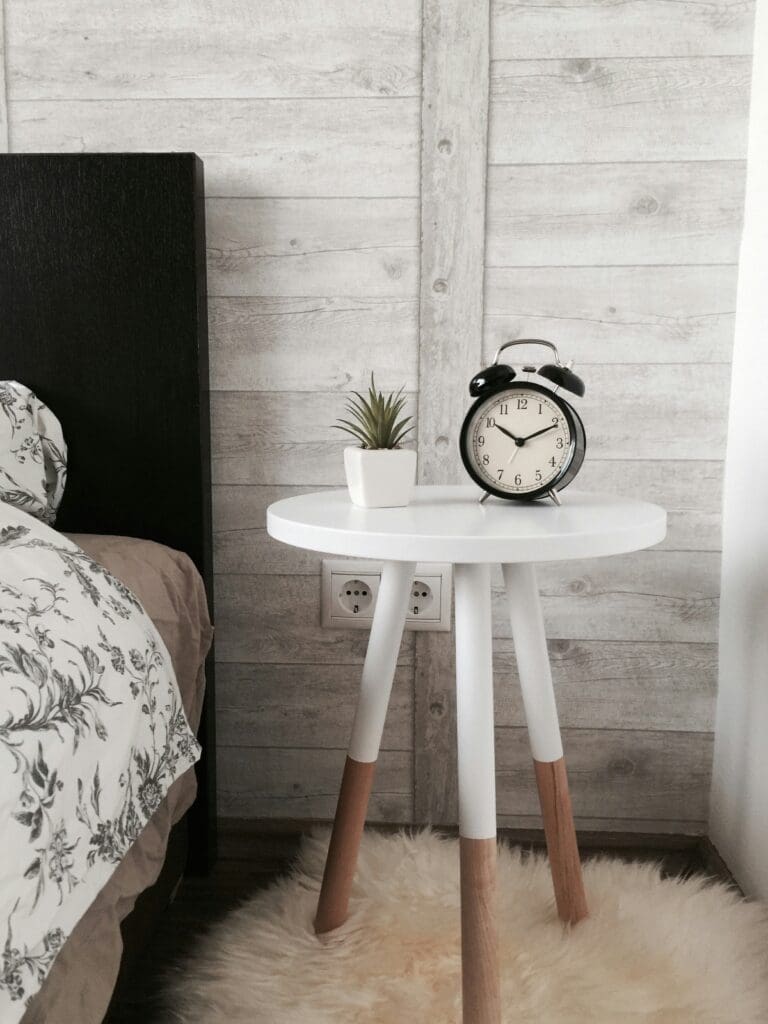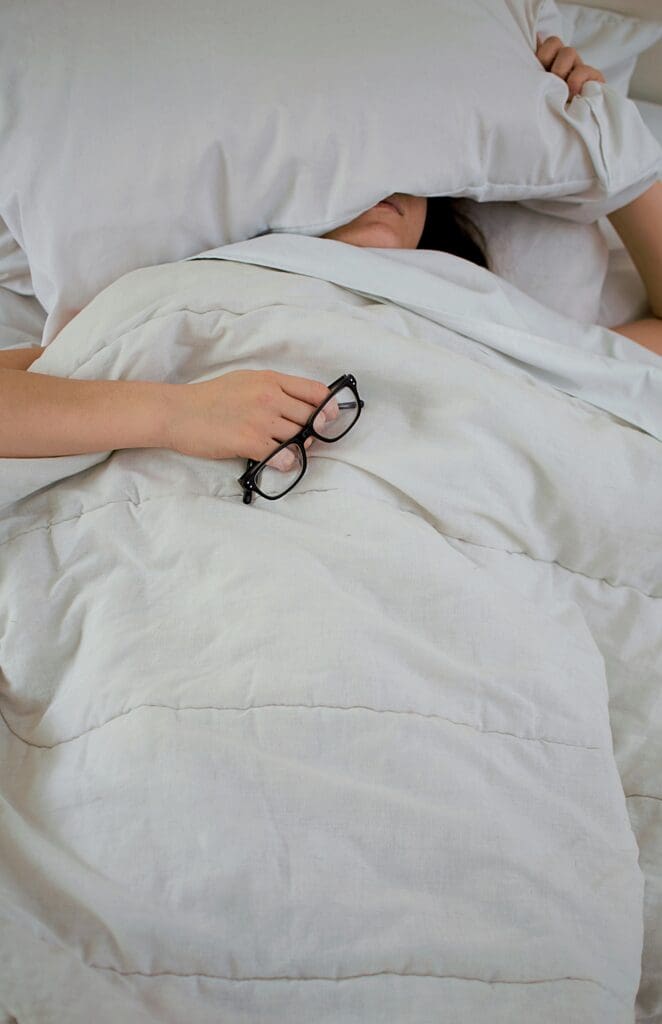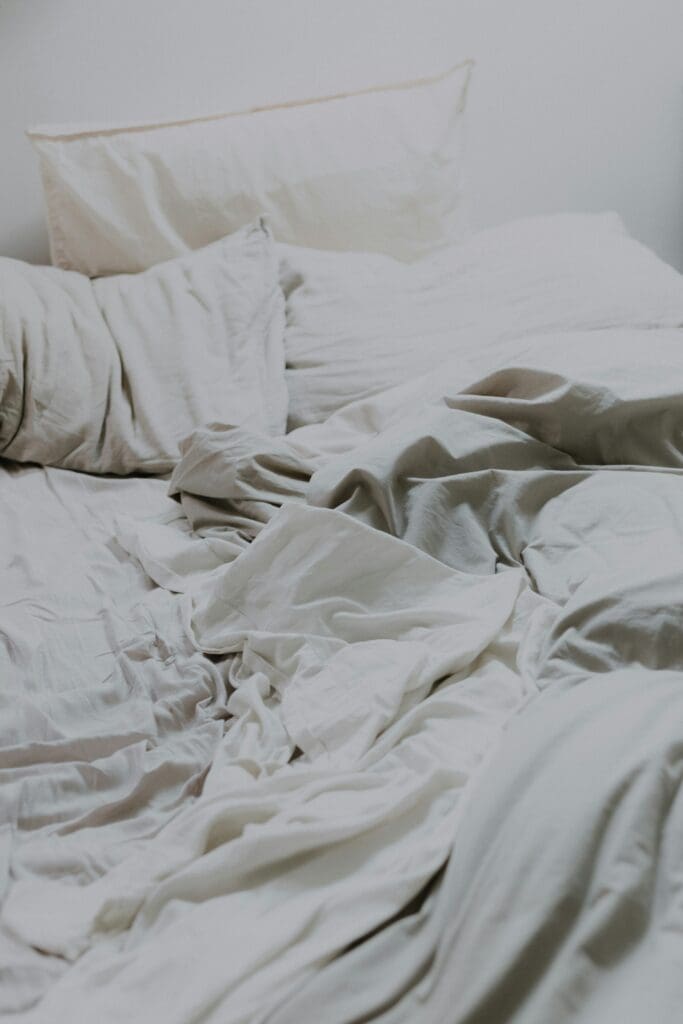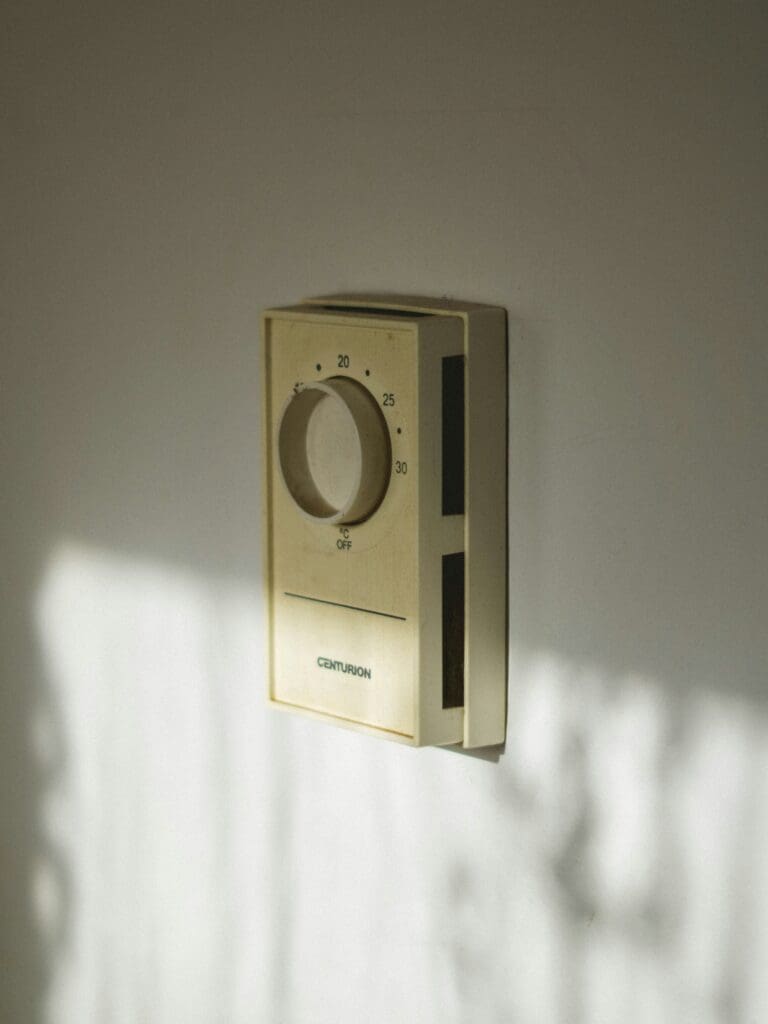Understanding the Importance of Sleep

Sleep serves as a fundamental component of overall health and well-being. It is during sleep that the body undertakes critical processes to rejuvenate and restore itself. Research indicates that adequate sleep plays a vital role in regulating various physiological functions, including metabolism, immune system performance, and cognitive functioning. The detrimental effects of sleep deprivation are well documented; insufficient sleep can lead to chronic health issues such as obesity, diabetes, cardiovascular diseases, and even mental health disorders like depression and anxiety.
Furthermore, the impact of poor sleep extends beyond physical health. Cognitive impairments, such as difficulties in concentration, memory lapses, and decreased problem-solving abilities, can result from inadequate rest. Individuals who frequently experience poor sleep often report reduced productivity and a decline in overall life satisfaction. The relationship between sleep and mental health is reciprocal; while mental health conditions can disrupt sleep patterns, insufficient sleep can exacerbate these conditions, leading to a vicious cycle.
The sleep environment also plays a critical role in the quality of sleep one experiences. Factors such as noise, lighting, and the comfort of bedding can significantly affect both the duration and quality of sleep. Creating a conducive sleep environment by optimizing these elements can promote more restful sleep, ultimately enhancing overall health outcomes. This involves not only the physical setting but also implementing bedtime routines that signal to the body it is time to rest.
In essence, understanding the importance of sleep is integral to recognizing its profound effects on both physical and mental well-being. In today’s fast-paced world, it becomes increasingly essential to prioritize restorative sleep as a key element of a healthy lifestyle.
Creating a Sleep-Friendly Atmosphere

Transforming your bedroom into a sleep-friendly environment is crucial for fostering better sleep quality. An ideal sleep sanctuary should be designed to promote relaxation and tranquility. One of the first factors to consider is lighting. Harsh and bright lights can disrupt your circadian rhythm, so it is advisable to opt for softer, dimmable lighting options. Consider using warm-toned bulbs or installing blackout curtains that minimize outside light disturbance, creating an environment conducive to restful slumber.
The color palette of your bedroom also plays a significant role in influencing your mood and, consequently, your sleep. Soft, subdued colors, such as pastels or earth tones, can create a serene atmosphere that encourages relaxation. Avoid intense, stimulating colors like red or bright yellow, which can evoke energy and alertness, contrary to the objective of a calming sleeping environment. Instead, choose harmonious combinations that create a cohesive look and feel throughout the room.
A well-organized and clutter-free space can significantly enhance your ability to unwind. Decluttering your bedroom by removing unnecessary items can reduce distractions and create a soothing aura. Consider utilizing storage solutions such as under-bed storage containers or decorative boxes to stow away items like books or clothes that may contribute to visual chaos. A tidy room not only promotes a sense of order but also fosters psychological clarity, making it easier for you to relax and transition into sleep.
Additionally, consider incorporating calming elements such as soft textiles and pleasant scents. Natural materials for bedding and furnishings can enhance comfort, while soothing aromas from essential oils or gently scented candles can further create an inviting atmosphere. A sleep-friendly bedroom is a harmonious blend of thoughtful design choices that together contribute to a holistic approach for better sleep.
Investing in the Right Bedding

Creating an environment conducive to sleep starts with investing in quality bedding. The type of mattress one chooses can significantly impact sleep quality. There is a variety of mattress materials available, including memory foam, innerspring, latex, and hybrid options. Memory foam mattresses are particularly popular due to their ability to contour to the body, providing excellent support and relieving pressure points. In addition, they minimize motion transfer, making them ideal for couples.
On the other hand, innerspring mattresses offer a traditional feel and often include coil systems that promote airflow, keeping the sleeper cool throughout the night. For those seeking an eco-friendly option, latex mattresses are made from natural materials, which provide durability and a responsive surface. Hybrid mattresses combine the best features of these materials, offering a balance of comfort and support.
Pillows are another crucial element of bedding that can greatly influence sleep quality. The right pillow should align the head, neck, and spine, minimizing discomfort. Options include memory foam, down, polyester, and latex pillows, each providing various levels of support and softness. Choosing a pillow based on sleeping position is essential; back sleepers may prefer medium, contoured pillows, while side sleepers often benefit from firmer options that fill the gap between the head and shoulder.
Lastly, the choice of sheets should not be overlooked. Different materials can contribute to a more restful sleep experience. Cotton sheets are a popular choice for their softness and breathability, while bamboo sheets offer moisture-wicking properties. Satin or silk sheets may also be considered, as they reduce friction against the skin, promoting a cool and comfortable sleeping environment.
Temperature Control for Quality Sleep

Achieving quality sleep is significantly influenced by the temperature of your sleeping environment. Research indicates that a cooler room temperature, typically between 60 to 67 degrees Fahrenheit, enhances the likelihood of deep and restorative sleep. As the body naturally cools down during sleep, maintaining a comfortable and slightly cool atmosphere can facilitate this process, promoting better rest and overall sleep quality.
To achieve the ideal temperature for sleep, consider your bedding and sleepwear carefully. Opt for lightweight and breathable materials for your sheets and blankets, such as cotton or bamboo. These materials allow air to circulate and wick moisture away from the body, keeping you comfortable throughout the night. Additionally, choose sleepwear that is loose-fitting and made from similar breathable fabrics to further enhance comfort. Avoid heavy materials or synthetic fabrics that may trap heat and disrupt your sleep.
In addition to the choice of bedding and clothing, climate control devices can further optimize your sleeping conditions. A programmable thermostat not only helps maintain the desired temperature, but it can also adjust automatically as bedtime approaches. Ceiling fans or portable fans can create a gentle airflow that enhances cooling without producing uncomfortable drafts. Moreover, utilizing shades or blackout curtains can reduce heat gain from sunlight during the day, keeping your room cooler for when you retire at night.
For those living in particularly warm climates, investing in a cooling mattress pad or using cooling gel-infused pillows can provide extra relief from heat. These products are designed to regulate temperature throughout the night, helping to sustain a comfortable sleeping environment. Overall, focusing on temperature control through bedding choices, climate adjustments, and suitable sleepwear is essential for optimizing sleep quality and achieving the restful night you desire.
Natural Sleep Aids: What to Consider

For those seeking a more restful night, natural sleep aids can offer effective alternatives to over-the-counter medications. A variety of products are available in the market today, each with unique properties that promote relaxation and enhance sleep quality. One popular category of natural sleep aids includes essential oils, which are derived from plants. Aromatherapy using oils such as lavender, chamomile, or bergamot may help calm the mind and facilitate a smoother transition into sleep.
When selecting essential oils, consider opting for organic products that are free of synthetic additives. A simple diffuser or a few drops on your pillow can create a peaceful atmosphere conducive to sleep. In addition to essential oils, herbal teas present another effective option. Chamomile and valerian root are two well-known herbal remedies recognized for their sedative properties. Consuming these teas before bedtime supports relaxation, setting the stage for a restful slumber. Ensure the teas are caffeine-free to avoid interruption of your sleep cycle.
Furthermore, sleep supplements such as melatonin, magnesium, and L-theanine have gained traction as various solutions for better sleep. Melatonin, a hormone naturally produced by the body, can assist in regulating sleep-wake cycles, especially in those experiencing irregular patterns. When considering supplements, it is crucial to consult healthcare professionals to evaluate their suitability based on individual health conditions and any potential interactions with medications.
Ultimately, integrating natural sleep aids into your bedtime routine can be a foundation for improved sleep quality. By selecting quality products rich in beneficial properties, you can cultivate an environment that encourages relaxation and restorative sleep.
Tech Tools: Smart Gadgets for Better Sleep

In the contemporary quest for better sleep, technology has provided various innovative solutions aimed at enhancing sleep quality. Smart gadgets specifically designed for sleep can play a crucial role in creating a restful environment. These devices help monitor sleep patterns, promote relaxation, and can even assist in developing healthier nighttime routines.
One noteworthy category of sleep-enhancing devices is sleep trackers. These gadgets come in various forms, including wristbands and under-mattress sensors, which monitor vital metrics like heart rate, sleep stage, and duration of sleep. By analyzing this data, users can gain insights into their nightly rest, allowing them to identify patterns and make adjustments accordingly. The goal is to foster a deeper understanding of personal sleep habits, enabling individuals to make informed choices that contribute to improved sleep quality.
Another integral tool is the smart alarm clock. Unlike traditional alarm clocks, these modern devices facilitate a more gentle awakening by utilizing gradual light changes or soothing sounds. Smart alarms can be programmed to wake individuals during the lightest sleep phase, minimizing grogginess and making it easier to rise in the morning. This technology can significantly enhance the morning routine, thus contributing to a more energized start to the day.
Furthermore, sound machines and apps designed to create calming audio environments have gained popularity. These devices produce a variety of sounds, from white noise to nature sounds, helping to mask disruptive noises and facilitate relaxation. The ability to customize soundscapes according to personal preference allows individuals to create their ideal sleep atmosphere, promoting a sense of tranquility essential for quality sleep.
Overall, integrating these tech-driven tools into bedtime routines can significantly enhance sleep quality. By leveraging smart gadgets to monitor, promote, and optimize sleep, individuals can take proactive steps toward a more restful night.
Apps for Sleep Management

In today’s digital age, numerous applications are available to help individuals enhance their sleep quality. These sleep management apps offer features designed to improve sleep hygiene, relaxation, and the monitoring of sleep patterns, ultimately contributing to a more restful night’s sleep.
One notable app is Sleep Cycle, which employs advanced algorithms to analyze sleep patterns based on sound and motion. By utilizing data collected during the night, Sleep Cycle wakes users during their lightest sleep phase, making it easier to rise feeling refreshed. This app also provides insightful analytics, allowing users to understand their sleep habits more clearly.
Another excellent option is Pzizz, which combines soothing sounds, guided meditations, and binaural beats to create a personalized experience that promotes relaxation. Pzizz is especially beneficial for those who find it challenging to fall asleep, as it employs a unique mix of music and voiceover that helps users transition into a restful state.
Calm is another popular app focused not only on sleep but also on mindfulness and relaxation. It features a variety of bedtime stories, sleep sounds, and breathing exercises designed to ease the mind before sleep. Users have reported improved sleep quality after regularly utilizing the calming techniques introduced in this app.
For those interested in tracking their sleep, Fitbit offers an integrated solution. Using wearable technology, Fitbit allows users to monitor their sleep stages, providing comprehensive feedback on total sleep time and quality. The accompanying app also offers personalized insights and tips to enhance sleep hygiene, ensuring users stay informed about their habits.
By incorporating these sleep apps into your nightly routine, you can effectively manage and improve your sleep quality. Reducing sleep disturbances and understanding your sleep patterns can lead to better overall health and well-being.
Establishing a Sleep Routine

Creating a consistent sleep routine is vital for fostering better sleep quality and overall well-being. A well-structured sleep schedule helps regulate the body’s internal clock, allowing for a more natural sleep-wake cycle. By establishing a set bedtime and awakening time, individuals can experience a significant improvement in their sleep patterns. Consistency in sleep times—even on weekends—can enhance the ability to fall asleep and wake up naturally, ultimately leading to a more refreshed and alert state throughout the day.
In addition to maintaining a regular sleep schedule, certain habits can promote restful sleep. One effective strategy is to develop a calming bedtime routine, which may include activities such as reading, gentle stretching, or taking a warm bath. These practices can signal to the mind and body that it is time to wind down, facilitating a smoother transition into sleep. It is advisable to limit exposure to screens from phones, tablets, and televisions at least an hour before bedtime, as the blue light emitted can interfere with the production of melatonin, a hormone crucial for sleep regulation.
Furthermore, creating a sleep-conducive environment can significantly impact sleep quality. This involves ensuring the bedroom is dark, quiet, and at a comfortable temperature. Incorporating white noise machines or blackout curtains can help minimize disturbances and promote a more peaceful sleep experience. It is also beneficial to manage fluid intake to avoid frequent nighttime awakenings. By prioritizing these habits and maintaining a consistent sleep routine, individuals are more likely to enjoy deeper, more restorative sleep.
Conclusion: The Path to Better Sleep

In the pursuit of better sleep, it is essential to acknowledge that our sleeping environment and habits play a significant role in achieving restorative slumber. Throughout this blog post, we have discussed various strategies, tools, and tips designed to enhance sleep quality. From the importance of a comfortable mattress and pillows to the benefits of a dark, quiet, and cool bedroom, creating an optimal sleep setting is crucial for fostering restful nights.
Moreover, establishing a consistent sleep routine cannot be overstated. Going to bed and waking up at the same time every day helps regulate the body’s internal clock, facilitating better overall sleep health. Limiting screen time before bed and engaging in relaxing pre-sleep activities can further prepare the body for a good night’s rest. Tools such as sleep trackers and meditation apps can also aid in monitoring sleep patterns and promoting relaxation, letting you make informed adjustments to your sleep hygiene.
Additionally, we explored the potential benefits of incorporating certain lifestyle changes. For instance, paying attention to dietary choices and physical activity can significantly impact sleep quality. Reducing caffeine and alcohol consumption, as well as exercising regularly, contributes to more restful sleep cycles. Thus, integrating these practical tips into daily life fosters an environment where sleep can flourish.
By adopting these actionable steps and remaining mindful of your sleep environment, you can embark on a journey towards better sleep. Remember, the path to improving sleep is a personal journey that requires patience and commitment. Investing time and effort into refining your sleep habits will undoubtedly lead to more rejuvenating nights and, ultimately, a better quality of life. Taking charge of your sleep is a fundamental stride towards better overall health.

